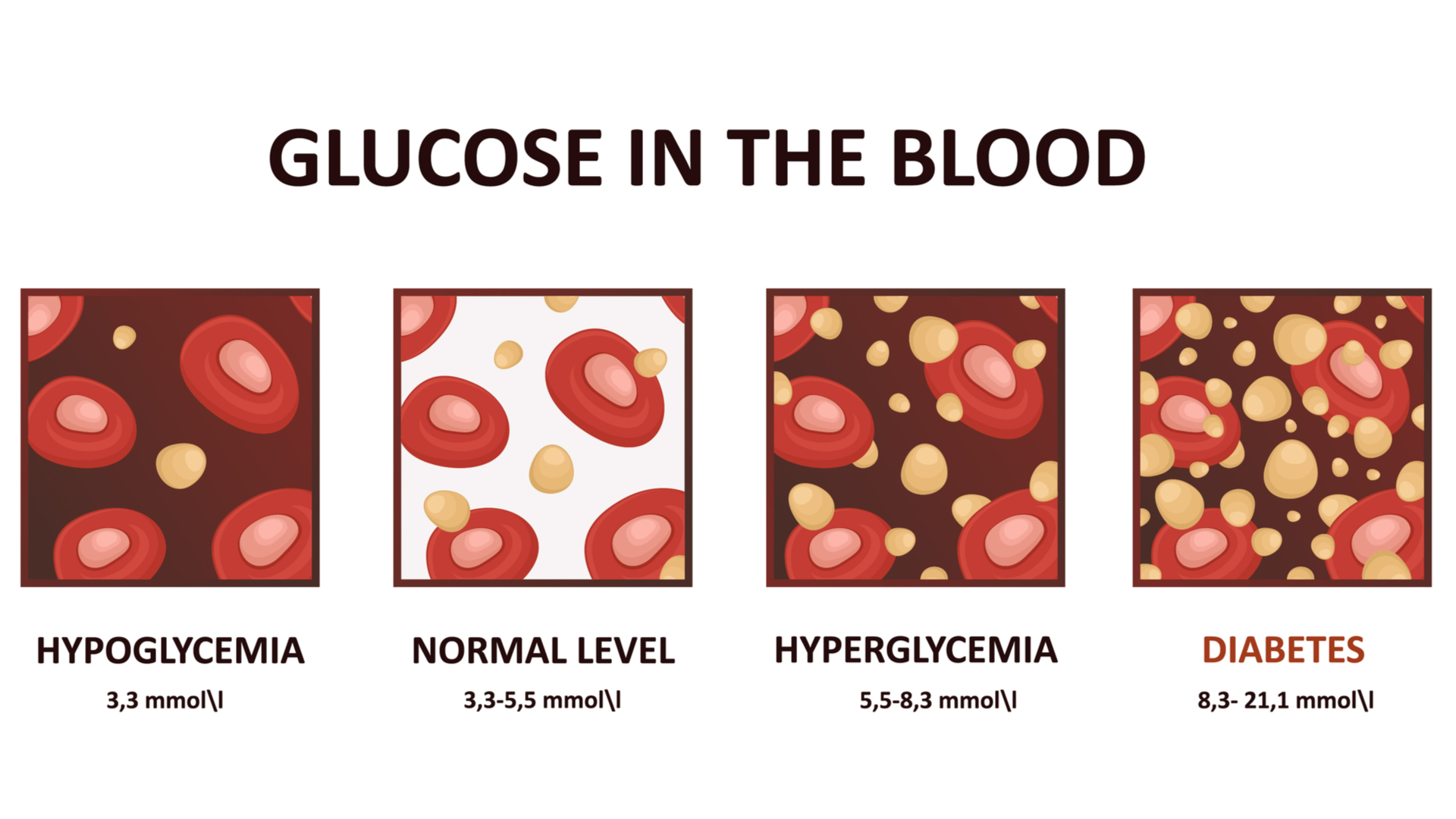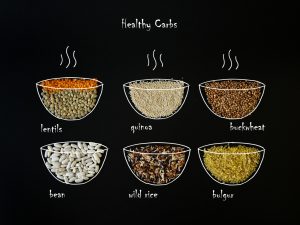Carbs: Getting the Right Balance
It’s not always straightforward to understand to understand how many carbs you need a day. In fact, to really understand carbohydrate metabolism, you first need to appreciate the primary carbohydrate called glucose, is both good and bad.
Glucose, is a simple sugar and a source of energy for our body. Glucose is often called “blood sugar” because it circulates in our bloodstream as a source of readily available energy. It is also stored in the body as glycogen for energy reserves during times when sufficient glucose may not be available in the blood.
Glucose is an essential fuel for the brain and nervous system, but in excess is extremely damaging to fine blood vessels in the eyes, heart, kidneys, and legs. This glucose excess or toxicity is the disease of diabetes. Because glucose is both essential and toxic, the amount of glucose in the blood is very carefully controlled mostly by the liver and the pancreas (ie. insulin).
Carbohydrate metabolism requires finding a balance between your need versus your tolerance. We will teach you how to find and target your specific Carbohydrate Tolerance to optimize your metabolism.

Is there a Daily Recommended Amount of Carbs?
Carbohydrates come in many forms including sugars, starches, and fibers. The Food & Nutrition Board (FNB) of the National Academy of Sciences, who establishes nutritional requirements, has stated that, contrary to protein and fat, there is no dietary requirement for carbohydrates.
But along with that statement, the FNB also states that they believe the diet is healthier with a minimum daily intake of 130 grams of carbohydrates plus at least 20 grams of fiber. This amount of carbohydrates allows for creating diets with a mixture of vegetables, fruits, and whole grains.
However, the unfortunately things is that most Americans consume more than 300 grams of carbohydrates and less than 10 grams of fiber mostly from highly refined grains in breads and cereals plus potatoes and sugar. Most researchers and physicians believe that this excessive intake of carbohydrates is a major factor (if not the most significant factor) contributing to epidemic levels of obesity, diabetes, and other preventable chronic diseases.
Why Do We Need Carbs?
 The only purpose for carbs is providing fuel. Fuel use fall into two categories: 1) obligatory needs to fuel the brain, nerve cells, and red blood cells (RBC). These cells can only use glucose (blood sugar) as a fuel and together they require about 80 grams of glucose each day; and 2) use by skeletal muscle.
The only purpose for carbs is providing fuel. Fuel use fall into two categories: 1) obligatory needs to fuel the brain, nerve cells, and red blood cells (RBC). These cells can only use glucose (blood sugar) as a fuel and together they require about 80 grams of glucose each day; and 2) use by skeletal muscle.
Skeletal muscle can use carbohydrates, fats, and protein for fuel. The actual amounts and combinations of these fuels used by muscle depends on your physical activity and what you eat. At rest, muscle is using glucose at 2 to 3 grams/hour, so the daily total use would be between 45 to 70 grams. The combination of the obligatory needs for the brain plus the resting needs for muscle add up to the 130 grams recommended by the FNB.
Beyond these basic needs for the brain, RBC, and muscle, any additional carbohydrates that enter the body must get used or stored rapidly. After a meal containing carbohydrates, blood sugar will begin to rise. The rise in blood sugar triggers the pancreas to release insulin and the insulin increases the movement of the glucose from the blood into cells, particularly the liver, muscles, and body fat.
If the increase in blood sugar gets too high (above 140 mg/dL) or remains elevated too long (beyond 2 hours after the meal), these are the definitions of diabetes. The cause of diabetes is generally assumed to be related to insulin, but the alternative explanation is simply consuming more carbohydrates than the body can use.
One of the confusing things about carbohydrate needs is that the body makes glucose from protein or more specifically amino acids. For every 10 grams of dietary protein consumed, the body will eventually convert the amino acids into 6 grams of glucose. This means that glucose needs are at least partially met by conversion of dietary protein.
Now that we have a handle on how many carbs we need a day, in our next issue, we’ll explore protein and how it drives your metabolism.

